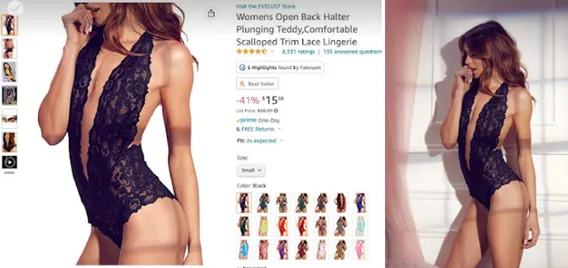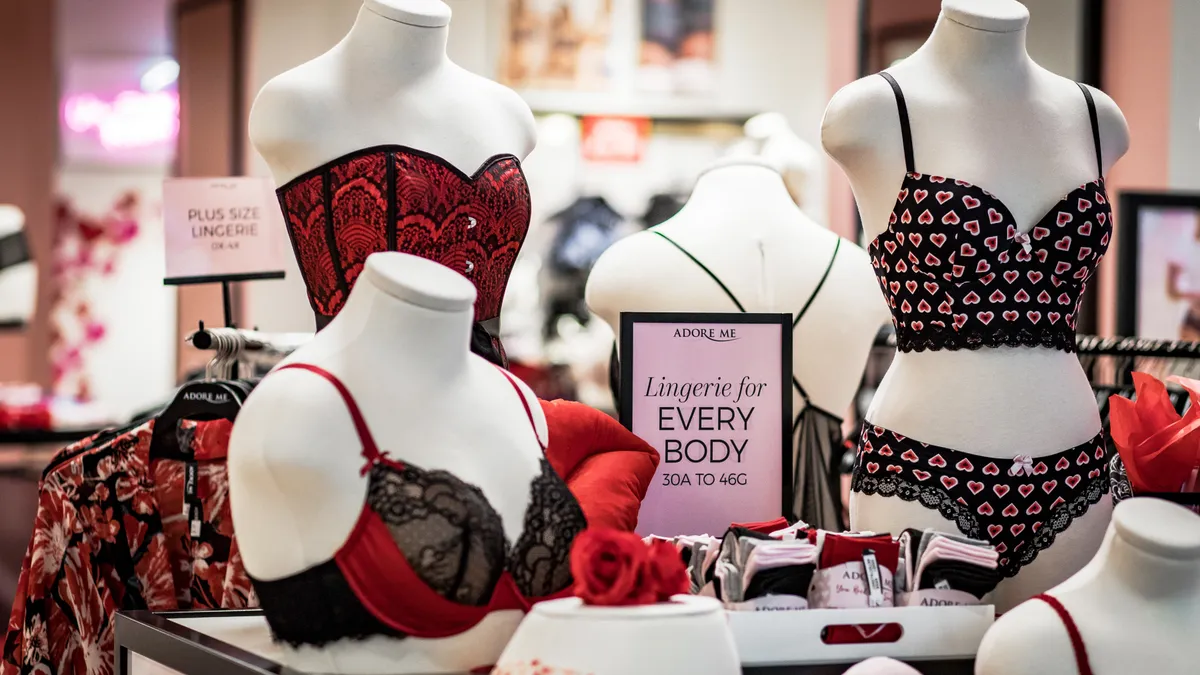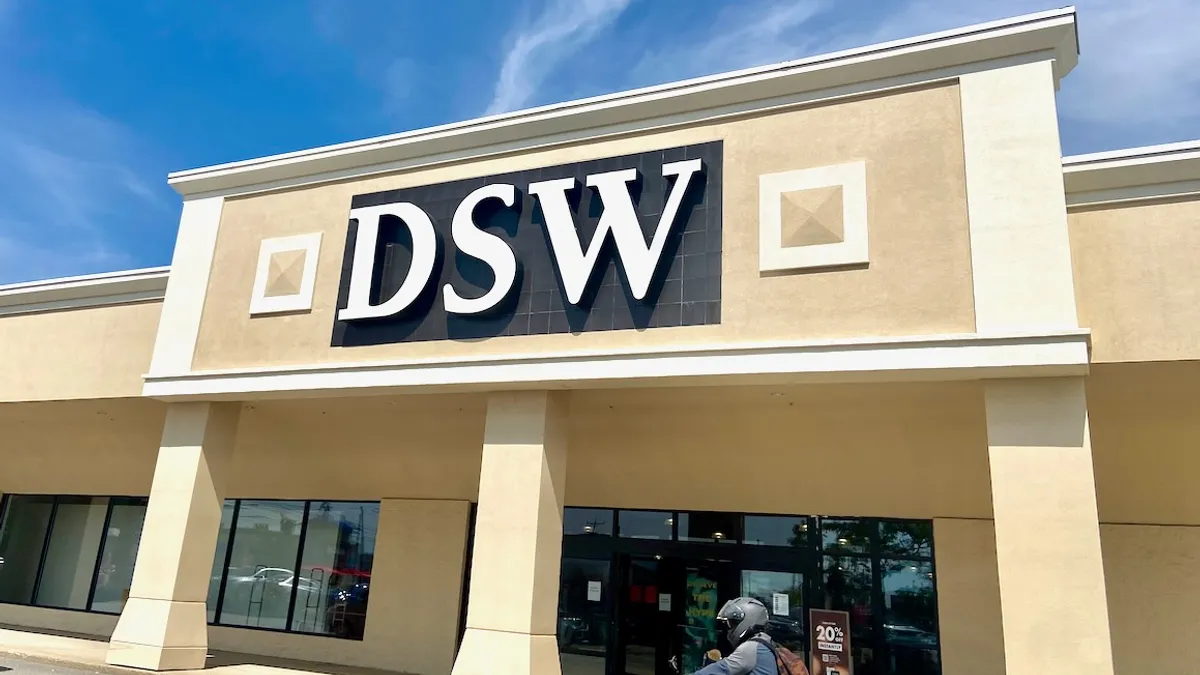A few years ago, Adore Me, like many other popular brands, found that proprietary images of its merchandise were increasingly being featured on Amazon under sometimes misleading seller names like “Adome.”
It’s not a new problem at Amazon. Counterfeiting there has been a focus of federal regulators and Congress for years. The company has been on the receiving end of warnings from the U.S. Trade Representative more than once, for example. And founder and then-CEO Jeff Bezos was hauled in front of the House Judiciary Committee over the issue in 2020.
“Amazon is a very competitive arena, using both what we might call white-hat and black-hat tactics. This is clearly on the more black-hat side of things,” Rick Watson, founder and CEO of RMW Commerce Consulting, said by phone. “For Amazon, this is the cost of doing business. As long as it doesn't take over the site, they're not too concerned about it. Not to say that they're not concerned at all, but that's their point of view. It's not like this is happening to 10% of sellers – it’s like an edge case. And it's not always easy to get resolved because you have to file cases and submit reports and sometimes it could take months to get some kind of resolution.”
That’s what played out at Adore Me. Alarmed that other sellers were benefiting from its branding, the decade-old DTC lingerie retailer reached out to the e-commerce giant, via an email system set up for such complaints.
“We would try to have these things taken down and the Amazon process — it's not a definitive ‘No, we will not take this action on your behalf.’ It's more like, ‘More information is needed,’ and kind of being circled around,” Adore Me Vice President of Strategy Ranjan Roy said via video conference call.
If Amazon did deem the grievance justified it would strike the listings, as seen in a 2019 email exchange between the companies that was viewed by Retail Dive. But those offenders would resurface almost immediately, using the same images and sometimes Adore Me product names, Roy said.

Adore Me, reluctant Amazon seller
Growing more leery of losing customers to imposters, the brand decided to sell on Amazon itself. After testing a few products on the site, Adore Me in April opened an Amazon storefront, a step taken grudgingly because it has invested in tight control of its operations, including running two highly automated fulfillment centers and custom-building its tech infrastructure.
“For us, owning as much of the customer relationship — the tech stack, the logistics, everything — is what gives us good economics and makes the overall customer experience better,” Roy said. “But we finally got to the point that, if someone searched ‘Adore Me’ on Amazon, one of the counterfeit brands would show up, and we almost had to put up a storefront just to at least keep that customer who's interested in us.”
"We finally got to the point that, if someone searched ‘Adore Me’ on Amazon, one of the counterfeit brands would show up, and we almost had to put up a storefront just to at least keep that customer who’s interested in us.”

Ranjan Roy
Vice President of Strategy, Adore Me
Adore Me also hoped that becoming an Amazon seller might elevate its complaints. Yet the brand has been relegated to communicating via Amazon’s online Seller Central portal and has been unable to get anyone from Amazon on the phone. Roy calls the process “time consuming, cumbersome and ineffective.”
In an email, an Amazon spokesperson shared background information on the company’s brand protection efforts, including the use of automated technology to constantly monitor its site for potential infringement the moment a product is listed. After Retail Dive’s inquiry into Adore Me’s situation, the Amazon spokesperson said that the e-retail giant got in touch with the lingerie brand.
“We have identified and taken appropriate action against product listings that infringed on Adore Me’s intellectual property, and have reached out to the brand to understand and investigate their most recent concerns,” the Amazon spokesperson said.
Adore Me confirmed that Amazon’s “Brand Escalation” team reached out by email on Tuesday to schedule a call, saying they were “made aware” of Adore Me’s difficulty resolving IP issues on Amazon.
Motivations
Roy said he believes that inquiries from the press drive Amazon, allowing it to respond on an as-needed basis to avoid negative attention. But the primary reason Amazon may be reluctant to pursue these cases too aggressively is that it wants the sales the fakes provide, he also said. Amazon didn't immediately respond to a request for information on how much revenue or product sales the company receives from counterfeits, or what the impact to its retail performance would be if all counterfeits were eliminated from its site.
In its most recent quarter, Amazon’s online retail sales fell 3% year over year to $51.1 billion, as its net product sales fell 1.8%.
"We have identified and taken appropriate action against product listings that infringed on Adore Me’s intellectual property, and have reached out to the brand."

Spokesperson
Amazon public relations
“The biggest thing to me is it’s fully in Amazon's interest to not solve this problem,” Roy said. “Why would they when, the more of these types of sellers there are, the more they generate sales and revenue? It's completely not in their best interest to try to solve this. Some level of regulation, policymaking, enforcement — outside of Amazon — needs to take place. From a competition standpoint, it's brands like us, that are growing and have our own website and customers, who have to devote our own time to actually policing this, and not even getting the right results, and now actually have to be on Amazon.”
As a brand now with a storefront on Amazon, Adore Me is also cognizant that Amazon itself faces claims from Allbirds and Peak Design that the e-retailer’s Amazon Basics line copied their designs, Roy said.
Methods
Last year, Amazon’s automated technology each day scanned more than 8 billion changes to product detail pages for signs of potential abuse, up from 5 billion in 2020. The company blocked more than 4 billion bad listings — suspected of being somehow fraudulent, of significant poor quality or otherwise improper — before they could be listed, according to information provided in an email.
But sophisticated tech alone isn’t the answer, according to Adore Me’s Roy.
“The biggest thing to me is it’s fully in Amazon's interest to not solve this problem. Some level of regulation, policymaking, enforcement — outside of Amazon — needs to take place."

Ranjan Roy
Vice President of Strategy, Adore Me
“This stuff requires human interaction, a real person,” he said. “Again, when you look at ‘Adome’ and you look at “Adore Me’ you see it right away. It's not a question. But if that process is, probably by design, not going to be aggressively removing things, it can never work. I 100% believe this needs to be a much more high-touch, human process.”
Amazon does employ “more than 12,000 people – including machine learning scientists, software developers, and expert investigators – who are dedicated to protecting customers, brands, selling partners, and our store from counterfeit, fraud, and other forms of abuse,” an Amazon spokesperson said by email.
Roy isn’t impressed with that number, calling it a “clear head fake” for a company with a $1.1 trillion market cap and hundreds of billions in annual sales. Even 12 million would be inadequate, as long as Amazon profits from fakes and deception, he also said.
“It might sound like a large number, but in the scale of their business, it is clearly not,” he said by email. “Even small online businesses have a direct phone number. ... Amazon makes money on FBA (Fulfillment by Amazon), and because of that, they get to limit investment into stopping it. This makes it so that brands like us are left having to chase them, and journalists need to request commentary on the issue in order for them to take real action.”






















